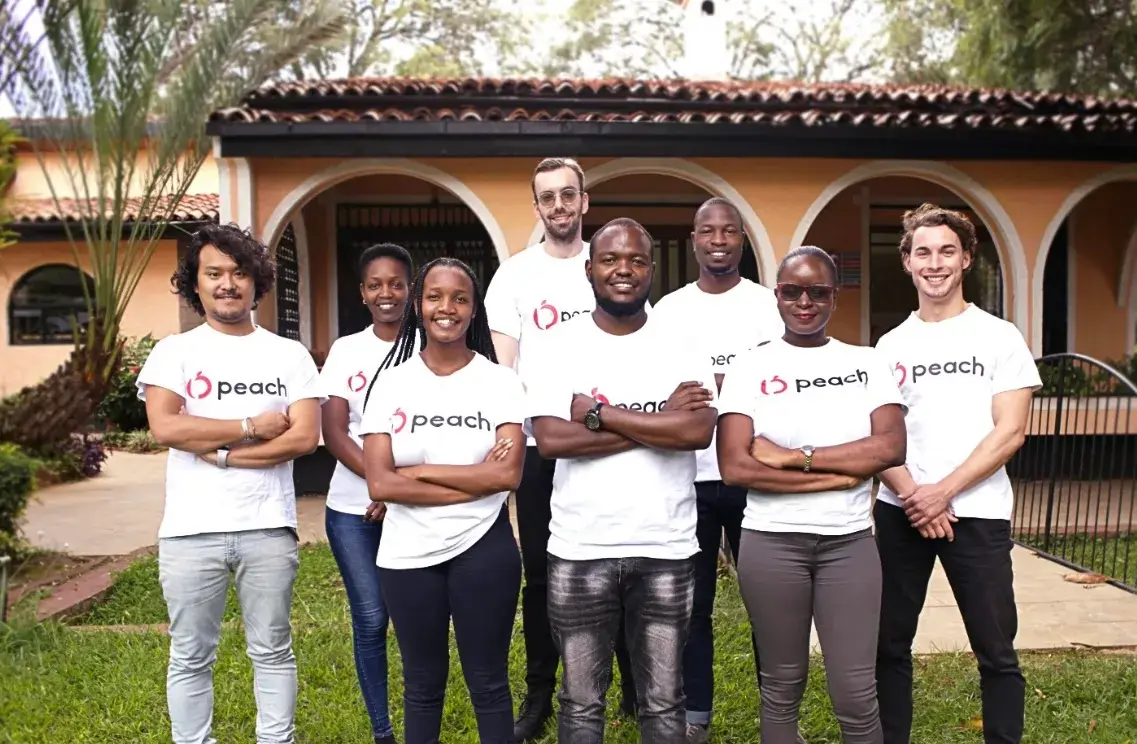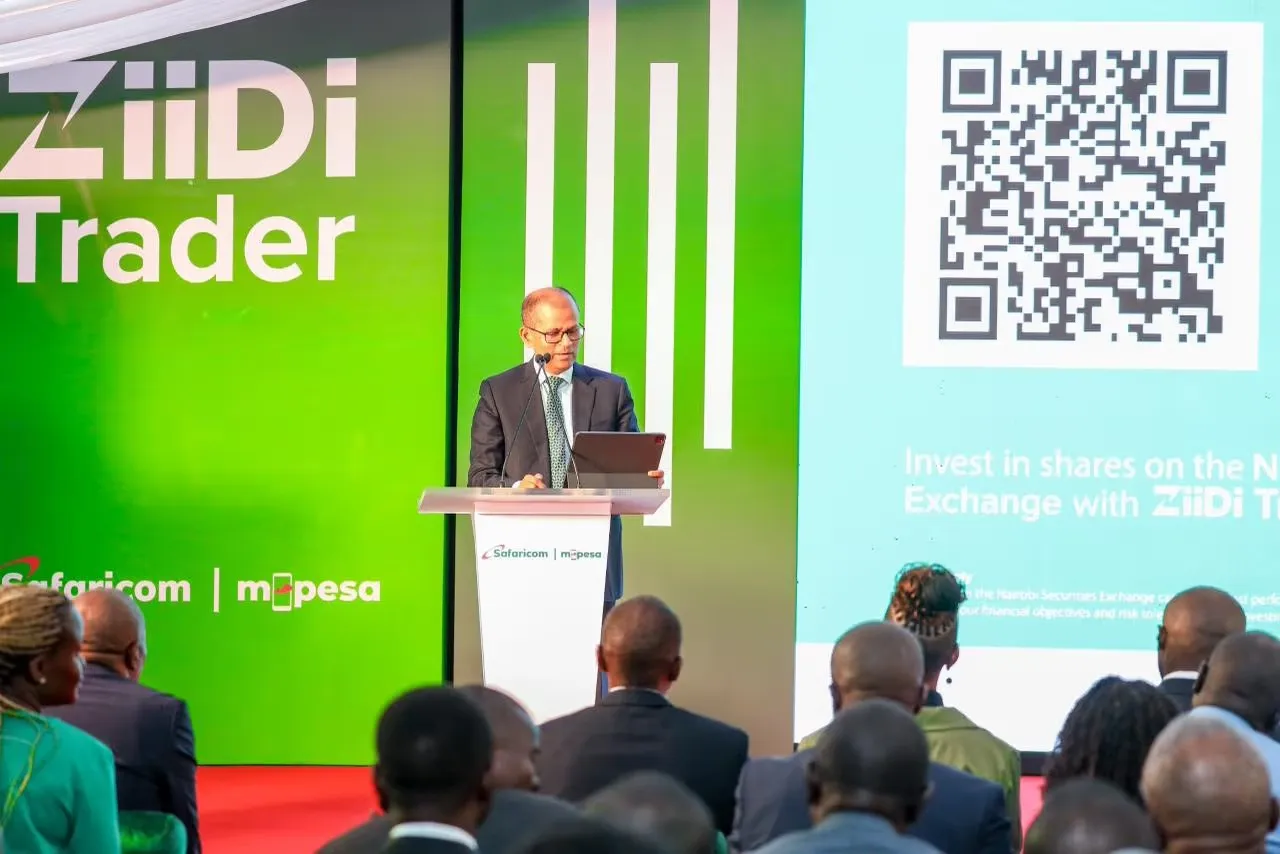In a pivotal development poised to redefine the landscape of vehicle transactions across East Africa, Peach Cars, a Nairobi-based used car marketplace, has successfully raised US$11 million in Series A funding. This significant capital injection is set to accelerate the company’s ambitious efforts to digitize and formalize the often-fragmented and opaque used car market in the region, bringing much-needed transparency and trust to millions of consumers.
The funding round was notably led by Suzuki Global Ventures, the corporate venture capital arm of the Japanese automotive giant Suzuki Motor Corporation, underscoring a strategic pivot by major global players towards Africa’s burgeoning digital economy. Prominent participation also came from the Japan Bank for International Cooperation (JBIC), a Japanese policy-based financial institution, and Gogin Capital. Adding to their previous commitment, University of Tokyo Edge Capital Partners (UTEC), which spearheaded Peach Cars’ US$5 million seed round in 2023, reaffirmed its confidence with additional investment. This strong Japanese backing highlights a growing trend of Asian capital actively seeking out innovative tech solutions across the African continent.
Founded in 2020 by the visionary duo Kaoru Kaganoi and Zachary Petroni, Peach Cars directly targets one of Africa’s most challenging yet ripe-for-disruption sectors. Their full-stack digital platform integrates every critical step of the vehicle transaction process: from meticulous inspections and flexible financing options to seamless logistics and comprehensive after-sales support. This holistic approach aims to replace the deeply entrenched informal and trust-deficient used car sales ecosystem that has long dominated East Africa.
Navigating the Labyrinth: Challenges in East Africa’s Used Car Market
The used car market in East Africa, particularly in Kenya, is characterized by its immense size and equally immense complexities. According to recent market insights, the Kenyan used car market alone was valued at hundreds of millions of dollars in 2023, with projections indicating steady growth in the coming years (Mobility Foresights on Kenya Used Car Market). A staggering statistic reveals that over 80% of all vehicles sold in Kenya are used cars, predominantly imported from Japan due to their perceived quality, dependability, and affordability compared to new vehicles (Data Insights Market on Kenya Used Car Market).
Despite the high demand, consumers in this market face a multitude of hurdles that Peach Cars is directly addressing:
- Pervasive Lack of Trust and Transparency: The informal nature of much of the used car trade breeds a severe lack of trust. Buyers are often left vulnerable to various scams and hidden risks. Common pitfalls include the sale of vehicles with undisclosed mechanical issues, doctored odometers displaying false mileage, fake logbooks, and even cars with outstanding loans that could unknowingly transfer to the new owner (Kifedha Credit on Buying Used Cars in Kenya). Reliable vehicle history information is scarce, making it nearly impossible for buyers to verify a car’s true condition or past. This trust deficit is a well-documented barrier to e-commerce growth across Africa, as highlighted by reports emphasizing the importance of trust and partnerships to unlock the continent’s digital potential (TechCabal on Trust in African E-commerce).
- Quality and Maintenance Concerns: Given that many imported used cars are relatively old and may come with high mileage, concerns about their long-term reliability and maintenance costs are prevalent. Buyers frequently face unexpected and expensive repairs soon after purchase, eroding the initial savings of buying a used vehicle and impacting overall ownership experience (Mobility Foresights on Kenya Used Car Market).
- Significant Financing Hurdles: Access to affordable vehicle financing remains a major challenge for the majority of East African consumers. Traditional banks often require extensive credit histories or collateral that many individuals, particularly those in the informal sector, simply do not possess. This financial exclusion forces many to rely on high-interest informal loans or to save for prolonged periods, limiting their mobility and economic opportunities.
Peach Cars’ Innovative Full-Stack Approach: Building Trust Digitally
Peach Cars tackles these systemic issues head-on with a comprehensive, technology-driven platform that puts transparency and buyer protection at its core.
- The 225-Point Inspection System: At the heart of Peach Cars’ value proposition is its proprietary 225-point inspection system. This rigorous evaluation goes far beyond a cursory check, providing real-time pricing, detailed condition tracking, and a verified assessment of each vehicle. By doing so, Peach Cars effectively “replaces the informal, trust-deficient used car sales ecosystem.” As CEO Kaoru Kaganoi eloquently puts it, “We’re not just improving how cars are sold, we’re challenging the assumption that African consumers should settle for less. This is about dignity, accountability, and transforming everyday commerce through trust.” This meticulous inspection process, backed by digital records, instills a level of confidence previously unheard of in the region’s used car market.
- Embedded Credit Scoring and Financial Inclusion: Addressing the critical financing gap, Peach Cars integrates embedded credit scoring directly into its platform. This innovative approach leverages alternative data points – potentially including mobile money usage, as seen with telco-powered credit scores in other African markets (MTN on Telco-Powered Credit Score) – to assess a buyer’s creditworthiness. This allows Peach Cars to offer integrated loan products to individuals who might otherwise be denied by traditional financial institutions due to a lack of formal credit history. This strategy directly contributes to financial inclusion (SBS Software on Digital Wallets in Africa), empowering more people to access essential assets like vehicles, which in turn can unlock economic opportunities such as ride-hailing services, delivery businesses, or improved commutes to work.
- A Lifecycle Platform for Vehicle Ownership: Peach Cars is building what it describes as a “lifecycle platform for vehicle ownership.” This means their involvement extends far beyond the initial transaction. By controlling elements like transaction management, title transfers, and crucially, parts procurement and after-sales support, the company provides an end-to-end solution. This integrated approach is vital in a market where sourcing genuine spare parts can be challenging and reliable after-sales service is often lacking (CFAO Mobility on After-Sales Support in Africa). By ensuring access to quality parts and service, Peach Cars enhances the long-term value and usability of the vehicles it sells, fostering deeper customer loyalty and satisfaction. The company is already generating revenue through commissions on sales, inspection fees, title transfer services, and the provision of these integrated loan products.
The Strategic Japanese Bet on African Mobility
The US$11 million Series A funding round signifies a deepening strategic interest from Japanese capital in the African tech and mobility sector.
- Suzuki Global Ventures’ Vision: For Suzuki Motor Corporation, a company with a dominant position in the Indian automotive market, this investment through its corporate venture capital fund, Suzuki Global Ventures, provides crucial exposure to an emerging African mobility ecosystem (Automotive World on Suzuki’s Investment in Peach Cars). Suzuki Global Ventures, launched in 2022, aims to create new businesses and business models through co-creation activities with startups that align with evolving customer demands. Their investment in Peach Cars is not merely financial; it’s about accumulating knowledge in the East African market, enhancing Suzuki’s brand strength, and potentially expanding sales and services in the region, adapting to local market dynamics built around digital trust and operational transparency.
- JBIC’s Landmark Direct Investment: The participation of the Japan Bank for International Cooperation (JBIC) is particularly noteworthy. JBIC, a Japanese policy-based financial institution, primarily supports Japanese companies in overseas business and promotes international economic cooperation. This direct investment in Peach Cars marks JBIC’s first direct bet on a startup on the African continent. This signifies a strategic shift in JBIC’s approach to Africa, moving beyond traditional large-scale infrastructure projects (like geothermal power generation in Kenya, as seen in previous JBIC activities (JBIC Press Release on African Loan)) to embrace the burgeoning startup ecosystem and digital transformation. JBIC’s broader strategy aims to achieve growth by tapping into emerging markets in the Global South and leveraging opportunities created by social changes, such as green transformation and decarbonization. Peach Cars, with its digital-first approach to a consumer market, fits this evolving mandate by facilitating commerce and potentially integrating future mobility solutions.
- Continued Support from UTEC: The repeated investment from University of Tokyo Edge Capital Partners (UTEC), a leading Japanese venture capital firm affiliated with the University of Tokyo, further solidifies the confidence in Peach Cars’ trajectory. UTEC’s initial lead in the seed round and subsequent participation in Series A indicates a long-term strategic commitment to the company’s vision and its potential to scale.
- Broader Japanese Interest in African Tech: This investment by Peach Cars is not an isolated incident but part of a growing pattern of Japanese capital flowing into African tech startups. For example, Hakki Africa, another Japanese mobility fintech operating in Kenya, recently raised significant funding backed by Japanese investors to provide microfinance solutions for taxi drivers (Launchbase Africa on Hakki Africa). These investments signal Japan’s recognition of Africa’s rapidly growing digital economy and its potential as a lucrative market for innovative solutions, particularly in the financial services and mobility sectors.
Scaling for Impact: Regional Expansion and Market Formalization
With the fresh Series A capital, Peach Cars is poised for significant expansion and deeper market penetration.
- Regional Scaling: The company plans to establish new inspection hubs outside Nairobi, gradually expanding its footprint across Kenya and eventually into other East African markets. This physical expansion will be critical for reaching a broader customer base and ensuring the consistency of their 225-point inspection standard across different regions.
- Team Growth: A substantial portion of the funding will be allocated to growing Peach Cars’ engineering and product teams. This investment in human capital is crucial for continuous innovation, refining the platform’s features, developing new functionalities, and ensuring a seamless user experience as the company scales. A robust tech team is the backbone of any successful digital platform.
- Control of the Vehicle Journey: Peach Cars aims to reinforce its “control of the vehicle journey” through enhanced logistics and parts supply services. This vertical integration strategy is a smart move in a market with fragmented supply chains (Globeflight on Automotive Supply Chain Challenges). By managing logistics, Peach Cars can ensure timely vehicle delivery and efficient movement of parts. By controlling parts supply, they can guarantee authenticity and quality, further building trust and providing reliable after-sales support, directly addressing a pain point for consumers.
- Formalizing the Informal Sector: Peach Cars’ model has a transformative impact beyond its immediate business operations. By formalizing a traditionally informal sector, it introduces structured processes, standardized quality checks, and transparent financial mechanisms. While the effects of formalization on businesses in developing countries can be complex and sometimes take time to fully materialize (VoxDev on Consequences of Informality), for consumers, it means greater protection, better quality vehicles, and improved access to financing, which ultimately fosters a healthier, more vibrant market. This shift supports broader economic development by bringing more transactions into the formal economy, potentially increasing tax revenues and facilitating a more robust financial ecosystem. The African automotive market, estimated at over US$21 billion in 2025 and projected to grow, is still heavily dominated by used vehicles (approximately 68% of the total market share in 2024), making formalization efforts critical for its overall development (Mordor Intelligence on Africa Automotive Market).
Kenya’s Pivotal Role in Africa’s Tech Boom
Peach Cars’ success is also a reflection of Kenya’s burgeoning reputation as a leading tech hub on the African continent. Nairobi, in particular, continues to drive Kenya’s rise as East Africa’s premier startup ecosystem, consistently ranking high among African startup cities (Theouut on Kenya’s Startup Ecosystem).
While the broader African startup funding landscape experienced a significant decline in venture capital deals between 2022 and 2024 (a drop of around 52%, steeper than any other region globally), Kenya has shown remarkable resilience. In 2024, Kenyan startups secured a substantial share of the continent’s total funding, even defying negative trends in certain sectors like Agri-Tech and Mobility. Although fintech funding in Kenya saw a decline in equity funding in 2024, the country’s overall performance underscores its leadership, attracting larger deal sizes for growth-stage investments (Tech In Africa on Kenya Startup Funding). This suggests investors are focusing on mature, revenue-generating companies like Peach Cars.
The maturity of Kenya’s ecosystem is supported by factors such as:
- Policy Support: Government initiatives, including the Startup Bill, aim to strengthen local ownership and attract foreign investors.
- Mobile Money Innovation: Platforms like M-Pesa have been instrumental in catalyzing digital innovation and financial inclusion across broader regions, laying the groundwork for digital-first businesses like Peach Cars (SBS Software on Digital Wallets in Africa). This mobile-first approach to financial services is a unique strength of many African markets.
- Growing Talent Pool: Efforts to develop a skilled workforce and attract global talent, coupled with a vibrant entrepreneurial culture, contribute to Kenya’s attractiveness as an investment destination.
The Road Ahead: Driving a Digital Future for African Mobility
Peach Cars’ US$11 million Series A funding round is a testament to the immense potential that lies within Africa’s informal economies, particularly when confronted with innovative digital solutions. By tackling fundamental issues of trust, transparency, and access to finance in the used car market, Peach Cars is not only building a successful business but also playing a crucial role in the broader digital transformation of the automotive sector in East Africa.
The strategic investment from Japanese giants like Suzuki and JBIC signals a clear recognition of Africa’s growing consumer base, its burgeoning digital adoption, and the opportunities it presents for global players looking beyond traditional markets. As African economies continue to grow and diversify, the demand for efficient, reliable, and transparent services will only increase. Companies like Peach Cars, empowered by strategic capital and a deep understanding of local challenges, are at the forefront of this change, driving a more equitable and efficient future for mobility across the continent. This investment marks another significant step towards leveraging technology to unlock economic potential and improve daily life for millions of Africans.
Ready to take your career to the next level? Join our dynamic courses: ACCA, HESI A2, ATI TEAS 7 , HESI EXIT , NCLEX – RN and NCLEX – PN, Financial Literacy!🌟 Dive into a world of opportunities and empower yourself for success. Explore more at Serrari Ed and start your exciting journey today! ✨
photo source: Google
By: Montel Kamau
Serrari Financial Analyst
25th June, 2025
Article, Financial and News Disclaimer
The Value of a Financial Advisor
While this article offers valuable insights, it is essential to recognize that personal finance can be highly complex and unique to each individual. A financial advisor provides professional expertise and personalized guidance to help you make well-informed decisions tailored to your specific circumstances and goals.
Beyond offering knowledge, a financial advisor serves as a trusted partner to help you stay disciplined, avoid common pitfalls, and remain focused on your long-term objectives. Their perspective and experience can complement your own efforts, enhancing your financial well-being and ensuring a more confident approach to managing your finances.
Disclaimer: This article is for informational purposes only and does not constitute financial advice. Readers are encouraged to consult a licensed financial advisor to obtain guidance specific to their financial situation.
Article and News Disclaimer
The information provided on www.serrarigroup.com is for general informational purposes only. While we strive to keep the information up to date and accurate, we make no representations or warranties of any kind, express or implied, about the completeness, accuracy, reliability, suitability, or availability with respect to the website or the information, products, services, or related graphics contained on the website for any purpose. Any reliance you place on such information is therefore strictly at your own risk.
www.serrarigroup.com is not responsible for any errors or omissions, or for the results obtained from the use of this information. All information on the website is provided on an as-is basis, with no guarantee of completeness, accuracy, timeliness, or of the results obtained from the use of this information, and without warranty of any kind, express or implied, including but not limited to warranties of performance, merchantability, and fitness for a particular purpose.
In no event will www.serrarigroup.com be liable to you or anyone else for any decision made or action taken in reliance on the information provided on the website or for any consequential, special, or similar damages, even if advised of the possibility of such damages.
The articles, news, and information presented on www.serrarigroup.com reflect the opinions of the respective authors and contributors and do not necessarily represent the views of the website or its management. Any views or opinions expressed are solely those of the individual authors and do not represent the website's views or opinions as a whole.
The content on www.serrarigroup.com may include links to external websites, which are provided for convenience and informational purposes only. We have no control over the nature, content, and availability of those sites. The inclusion of any links does not necessarily imply a recommendation or endorsement of the views expressed within them.
Every effort is made to keep the website up and running smoothly. However, www.serrarigroup.com takes no responsibility for, and will not be liable for, the website being temporarily unavailable due to technical issues beyond our control.
Please note that laws, regulations, and information can change rapidly, and we advise you to conduct further research and seek professional advice when necessary.
By using www.serrarigroup.com, you agree to this disclaimer and its terms. If you do not agree with this disclaimer, please do not use the website.
www.serrarigroup.com, reserves the right to update, modify, or remove any part of this disclaimer without prior notice. It is your responsibility to review this disclaimer periodically for changes.
Serrari Group 2025
















